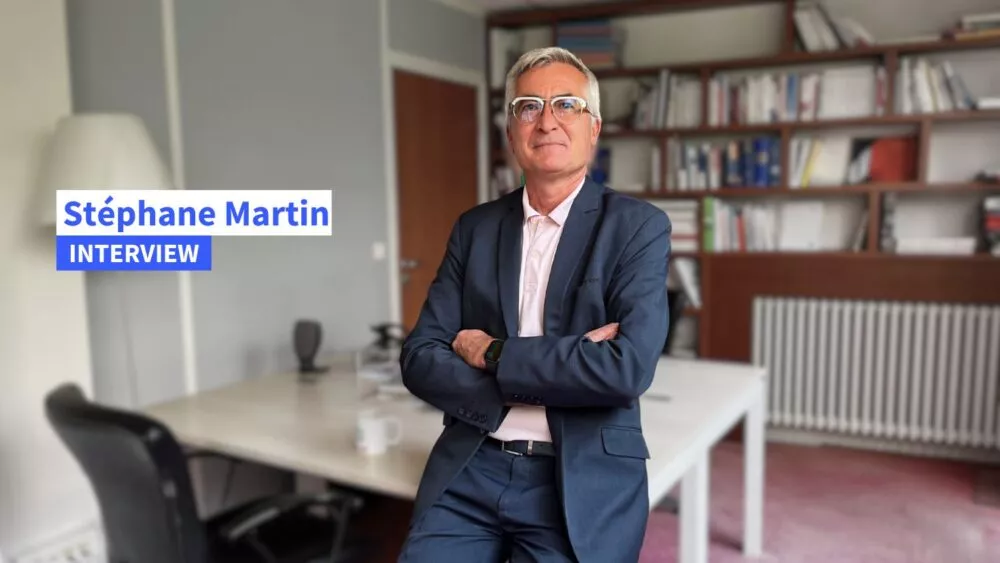What issue does this initiative address?
This initiative addresses the need to maintain a free flow of information into Russia. There are two main objectives: first, to help many independent Russian media in exile stay connected with their audience, and second, to give Russian citizens—saturated with propaganda—access to independent informational content. The goal is to break through the Russian barrier that blocks free information and to reach new audiences.
How does the system work?
The Svoboda project relies on the technological expertise of Eutelsat, a top satellite broadcasting provider, which operates a series of satellites aimed at Russia, including next-gen ones. The package is hosted on HotBird at the 13° position, the second-most used satellite for Russia.
We collect news content from our 90 media partners and compile them into a channel feed—like a continuous stream. This stream (called “uplink”) reaches the satellite, which then broadcasts it to much of Europe, including countries with large Russian-speaking minorities, as well as Russia itself.
To receive Svoboda, households need a simple satellite dish, which costs about 100 to 200 rubles. They only need to update their channel list on their smart TVs to access the channels.
Is the broadcast continuous?
Yes, it runs 24/7. Most content is updated weekly and consists of “evergreen” material, which remains relevant over time. We also include more timely content. For example, during Alexei Navalny’s death, Russian TV completely ignored the funeral. At that time, we didn’t yet have a live news channel or recent footage. So, to broaden the offering, we launched Svoboda News on May 14, a channel updated daily.
Can Russia intercept the Svoboda broadcast or track viewers?
So far, they haven’t been able to. A satellite footprint can only be stopped by jamming. But since we’re using a key satellite for Russian households, jamming us would also jam all other channels, affecting millions who rely on satellite TV—still dominant in Russia.
In contrast to terrestrial television, which is easy to control, they have no control over our satellite package.
As for surveillance, satellite broadcasting is free-to-air, meaning no subscriptions and no platform login—making it untraceable.
Where are the exiled media broadcasting from?
We collect content from Russian editorial teams in exile across Europe—mainly Riga, Berlin, and Amsterdam. For security reasons, I can’t reveal the exact uplink location, but it is within a secure legal EU framework and not under Russian jurisdiction.
Do you have audience figures?
We know that 4.5 million households are currently equipped to receive Svoboda. However, we don’t share viewership data because free-to-air satellite TV is unmeasurable. And we avoid requiring logins to ensure user safety.
What’s the typical viewer profile?
We’ve analyzed our YouTube and platform data. We estimate that 6–9% of the Russian population consumes content from independent Russian media in exile. The 4.5 million households reached by Svoboda tend to be working-class or rural. While HotBird 13° isn’t the top Russian satellite, it’s a widespread alternative.
Why aren’t social media platforms enough?
Because most social media are blocked in Russia. The state promotes alternatives—like Vkontakte instead of Facebook—to keep users on government-controlled platforms. The strict media regulator Roskomnadzor can penalize users for sharing unauthorized content.
YouTube is still accessible, despite resisting most Kremlin demands, but Russia is developing Rutube, a fully state-controlled replacement. If YouTube gets banned, audiences will need new options, and we’re preparing for that.
How do you select the media on Svoboda?
We only include independent outlets producing journalistic content. We’ve had many entertainment requests—which we don’t rule out, because humor and escape are valid reasons to tune in. But for now, we focus on content with journalistic value.
Talk shows are popular, and even independent ones can be highly politicized, but we currently avoid highly political channels.
Do you influence editorial lines?
No. We don’t create content for Svoboda. Russian journalists have rebuilt their channels and increased production to meet satellite demand. We have an advisory board of Russian civil society and media figures to guide our selection, but the content remains independent.
Some say Eutelsat is still helping Russian propaganda. Is that true?
Does Eutelsat still have business ties to Russia? Probably. Is it acceptable that a French company, regulated by French law and partly state-owned, is also broadcasting Kremlin propaganda? No—and France’s Conseil d’État agreed with us when ARCOM claimed it wasn’t their responsibility.
But does this prevent Eutelsat from working with us? Also no.
Kremlin-linked journalist Alexander Kotz accused RSF of being funded by U.S. intelligence. Why are such accusations common?
We publicly disclose our funding. Very little comes from the U.S., and none from intelligence services. The Svoboda project is entirely RSF-funded, with no EU funding so far.
Accusing NGOs of foreign financing is a classic tactic of authoritarian regimes to discredit opposition.
The Kremlin blocked RSF’s website before the global press freedom ranking. Has it reacted to Svoboda?
No, there has been no official reaction. But blocking our site was clumsy—we use “mirror sites” to bypass censorship by generating fresh URLs.
This cat-and-mouse game with the Kremlin is one we usually win. Their silence on Svoboda may actually indicate its effectiveness.
What’s next? Could you launch similar projects in other censored regions?
Launching a press freedom satellite may seem like a crazy dream, but it's appealing. We’ll need to assess audience size and secure funding. But with HotBird 13°’s wide reach, expanding to other regions is absolutely feasible.
So, is this a success?
It’s a bit early to say, but we’ve proven it’s possible. We weren’t sure if we’d have enough content, if the tech would work, or if Russian citizens could tune in. But the response has been positive. Media outlets are engaged, the project is growing, and broadcasts are stable.
We still need a sustainable funding model and a way to measure impact, which will be our next focus.








